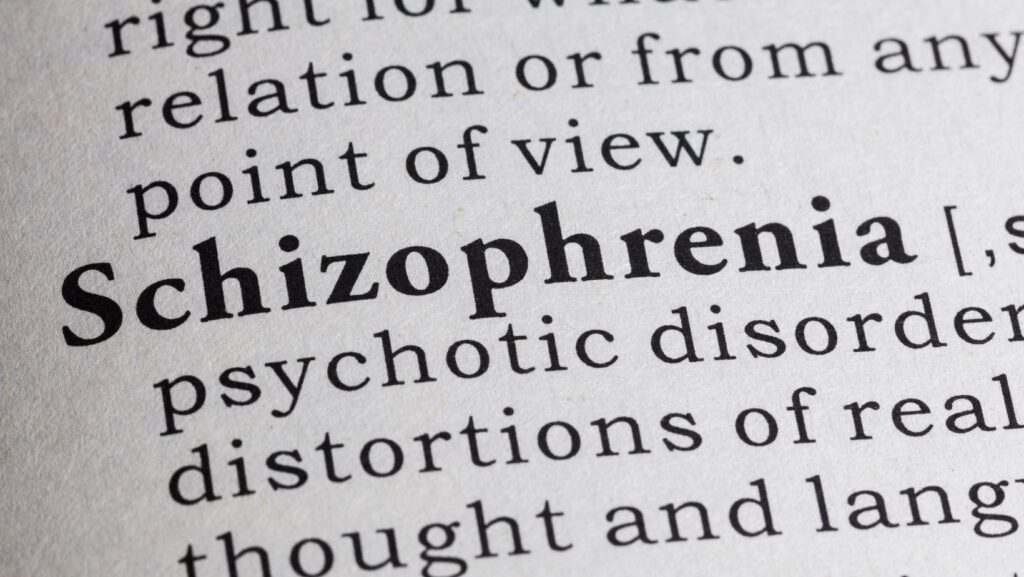Understanding and Managing Schizophrenia

Schizophrenia is a severe mental health disorder that typically manifests in late adolescence or early adulthood. Understanding schizophrenia and implementing effective management strategies is crucial for improving the quality of life for those affected by this condition. Without proper care, individuals with schizophrenia may struggle significantly with daily functioning, leading to severe mental health issues.
Positive Symptoms: These include hallucinations (seeing or hearing things that are not present), delusions (false beliefs that are not based on reality), and thought disorders (unusual or dysfunctional ways of thinking).
Negative Symptoms: These involve a reduction or lack of ability to function normally. For example, a person may neglect personal hygiene, show a lack of emotion, withdraw from social activities, or lose the ability to experience pleasure.
Causes and Risk Factors
The exact cause of schizophrenia is not known, but it is believed to result from a combination of genetic, brain chemistry, and environmental factors.
Genetic Factors: Schizophrenia tends to run in families, suggesting a genetic predisposition. However, no single gene is responsible for the disorder. Instead, multiple genetic changes contribute to the risk.
Brain Chemistry and Structure: Imbalances in the brain’s neurotransmitters, such as dopamine and glutamate, are thought to play a role in schizophrenia. Additionally, structural abnormalities in the brain, such as reduced gray matter and enlarged ventricles, have been observed in people with the disorder.
Environmental Factors: Factors such as prenatal exposure to viruses, malnutrition before birth, and psychosocial stressors are also believed to increase the risk of developing schizophrenia.
Diagnosing Schizophrenia
Diagnosing schizophrenia involves a comprehensive evaluation by a mental health professional. The process typically includes:
Clinical Interview: A detailed interview to understand the individual’s symptoms, medical history, family history, and personal circumstances.
Physical Examination: A physical exam to rule out other conditions that might be causing the symptoms.
Psychiatric Assessment: Use of standardized assessment tools and questionnaires to evaluate the severity and nature of the symptoms.
Diagnostic Criteria: According to the Diagnostic and Statistical Manual of Mental Disorders (DSM-5), a diagnosis of schizophrenia is made if the individual has experienced at least two of the main symptoms (delusions, hallucinations, disorganized speech, disorganized or catatonic behavior, and negative symptoms) for a significant portion of time during a one-month period, with some level of disturbance present for at least six months.
Managing Schizophrenia
Effective management of schizophrenia requires a comprehensive, individualized treatment plan that includes medication, therapy, and support.
Medication: Antipsychotic medications are the cornerstone of schizophrenia treatment. They help control symptoms by affecting the brain’s neurotransmitter systems. There are two main types of antipsychotics: typical (first-generation) and atypical (second-generation). The choice of medication depends on the individual’s symptoms, side effects, and response to treatment.
Psychotherapy: Various forms of psychotherapy can help individuals with schizophrenia. Cognitive Behavioral Therapy (CBT) is particularly effective in managing symptoms, improving functioning, and preventing relapse. It helps individuals challenge and change distorted thoughts and behaviors. Other beneficial therapies include family therapy, which involves family members in treatment to improve communication and support, and social skills training, which helps individuals improve their social interactions and daily functioning.
Supportive Services: Comprehensive treatment often includes case management, vocational training, and supported employment to help individuals integrate into the community and maintain independence. Peer support groups and community programs can provide additional emotional and practical support.
Lifestyle and Self-Care: Encouraging a healthy lifestyle is crucial. Regular exercise, a balanced diet, adequate sleep, and avoiding alcohol and drugs can significantly impact overall well-being. Stress management techniques, such as mindfulness, meditation, and yoga, can also help manage symptoms.
Continuous Monitoring and Adjustment: Schizophrenia is a lifelong condition that requires ongoing management. Regular follow-ups with healthcare providers are essential to monitor symptoms, adjust treatment plans, and address any side effects of medication.
Challenges in Managing Schizophrenia
Despite advances in treatment, managing schizophrenia poses significant challenges.
Medication Adherence: Ensuring individuals consistently take their medication is a common challenge, often due to side effects, lack of insight into the illness, or forgetfulness. Strategies to improve adherence include patient education, using long-acting injectable medications, and involving family members in treatment.

Stigma and Discrimination: Stigma associated with schizophrenia can lead to social isolation, discrimination, and reluctance to seek treatment. Public education and awareness campaigns are vital to reduce stigma and promote understanding.
Access to Care: Access to mental health services can be limited by factors such as cost, availability of providers, and geographic location. Advocacy for better mental health policies and resources is essential to improve access to care.
Understanding and managing schizophrenia is a complex but crucial endeavor in the realm of mental health. Comprehensive treatment plans that include medication, therapy, and supportive services can significantly improve outcomes for individuals with schizophrenia.


 Everything You Need to Know About Car Transport for a Big Move
Everything You Need to Know About Car Transport for a Big Move  Why DUI Accidents Demand The Expertise Of A Lawyer
Why DUI Accidents Demand The Expertise Of A Lawyer  Bikini Underwear: Finding the Perfect Fit for All-Day Comfort
Bikini Underwear: Finding the Perfect Fit for All-Day Comfort  How to Satisfy Your Taco Cravings in Minutes by Ordering Tacos Online
How to Satisfy Your Taco Cravings in Minutes by Ordering Tacos Online  Finding a Luxury Resort in Belize
Finding a Luxury Resort in Belize  How to Create Lasting Wellness by Supporting Those Around You
How to Create Lasting Wellness by Supporting Those Around You